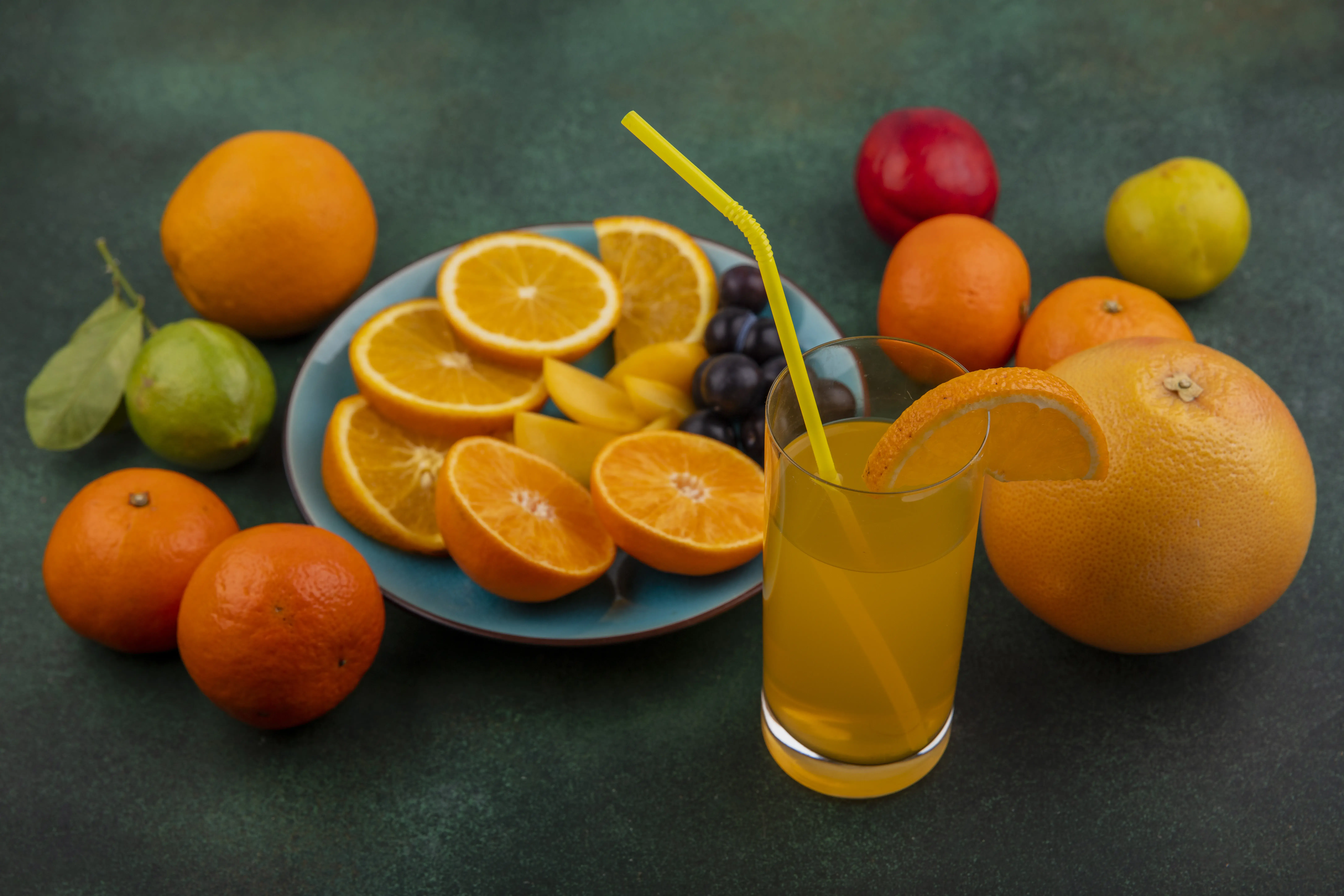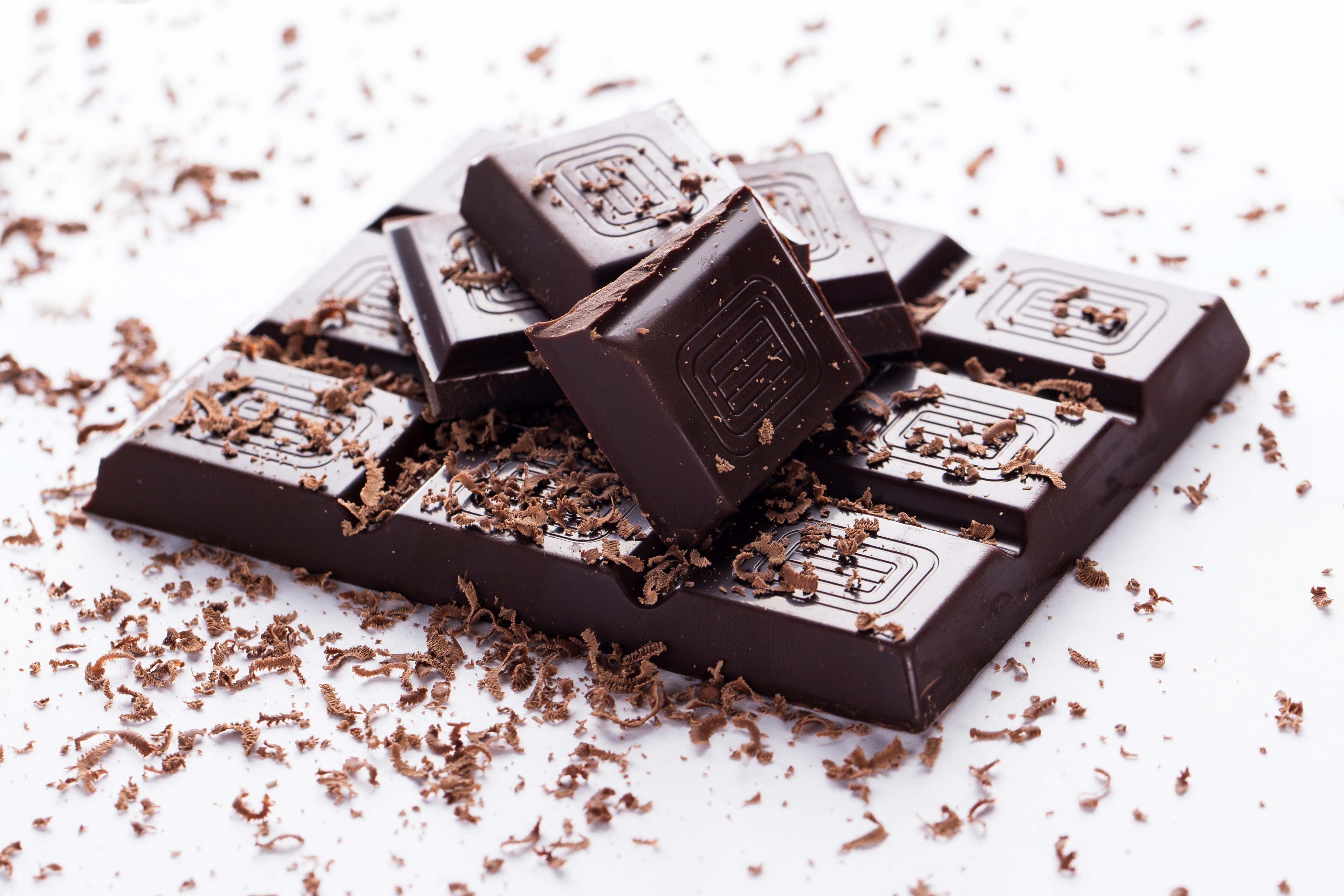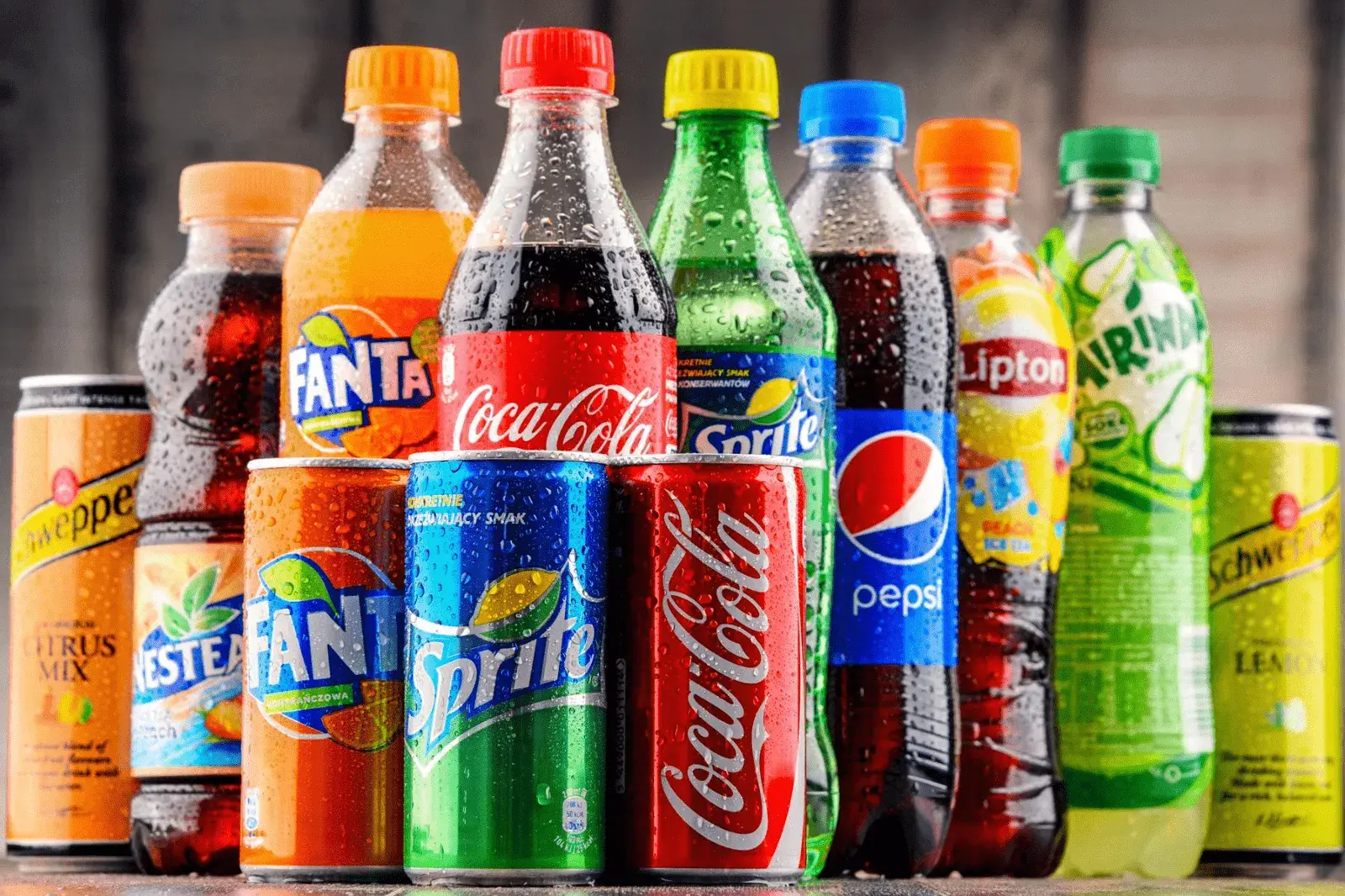Gastroesophageal reflux disease (GERD) is when stomach acid flows back into the esophagus, causing symptoms such as heartburn and acid reflux. It is a common digestive disorder that affects people of all ages and can be caused by various factors, including overeating, obesity, and certain medications. GERD can be managed with lifestyle changes, such as avoiding triggers, eating smaller meals, and maintaining a healthy weight, as well as with medications that reduce stomach acid production. In severe cases, surgery may be necessary to repair the esophageal sphincter or remove the esophagus's lower part. If you think you may have GERD, you must consult your doctor for a proper diagnosis and treatment plan. Continue reading to know about Gastroesophageal reflux disease food to avoid. Erosive stomach acid in the esophagus may result from fried and fatty foods relaxing the LES. Additionally, these food items can increase digestion time. Reducing your overall daily fat consumption can assist, as consuming foods heavy in fat increases your likelihood of developing reflux symptoms.The following foods have a lot of fat. Avoid or consume them in moderation:
Erosive stomach acid in the esophagus may result from fried and fatty foods relaxing the LES. Additionally, these food items can increase digestion time. Reducing your overall daily fat consumption can assist, as consuming foods heavy in fat increases your likelihood of developing reflux symptoms.The following foods have a lot of fat. Avoid or consume them in moderation: Although fruits and vegetables are crucial components of any healthy diet, some fruits, particularly those with a high citrus content, could exacerbate or even start GERD symptoms, so it is essential to be careful while choosing your pick of fruits to include in your diet. You should reduce your intake of or completely avoid the following foods if you frequently get acid reflux:
Although fruits and vegetables are crucial components of any healthy diet, some fruits, particularly those with a high citrus content, could exacerbate or even start GERD symptoms, so it is essential to be careful while choosing your pick of fruits to include in your diet. You should reduce your intake of or completely avoid the following foods if you frequently get acid reflux: Methylxanthine is a component found in chocolate. It has been demonstrated to relax the LES's smooth muscle and boost reflux.
Methylxanthine is a component found in chocolate. It has been demonstrated to relax the LES's smooth muscle and boost reflux. Although many people claim that eating spicy foods causes them to have acid reflux, the scientific evidence for this is far from conclusive. The chemical called capsaicin, which gives chilies their heat, is considered to be the main culprit. Capsaicin causes a burning feeling in the esophagus by activating so-called TRPV1 receptors.
Although many people claim that eating spicy foods causes them to have acid reflux, the scientific evidence for this is far from conclusive. The chemical called capsaicin, which gives chilies their heat, is considered to be the main culprit. Capsaicin causes a burning feeling in the esophagus by activating so-called TRPV1 receptors. While not everyone has heartburn after eating onions or garlic, enough people do that the medical community advises keeping a diet diary to monitor these items. Since raw onions are extremely acidic, boiling them entirely before eating them may reduce your feelings of heartburn.Also Read: Can I drink baking soda for Heartburn?
While not everyone has heartburn after eating onions or garlic, enough people do that the medical community advises keeping a diet diary to monitor these items. Since raw onions are extremely acidic, boiling them entirely before eating them may reduce your feelings of heartburn.Also Read: Can I drink baking soda for Heartburn? Acid reflux symptoms can also be brought on by mint and items flavored with mint, such as chewing gum and breath mints. Additionally, it relaxes the lower esophageal sphincter, which opens up the esophagus and stomach and can result in gastroesophageal reflux disease and heartburn. People with Hiatal hernias and, unsurprisingly, those with gastroesophageal reflux disease may experience worsening of their reflux symptoms (GERD).
Acid reflux symptoms can also be brought on by mint and items flavored with mint, such as chewing gum and breath mints. Additionally, it relaxes the lower esophageal sphincter, which opens up the esophagus and stomach and can result in gastroesophageal reflux disease and heartburn. People with Hiatal hernias and, unsurprisingly, those with gastroesophageal reflux disease may experience worsening of their reflux symptoms (GERD). Coffee and soda's acidity may contribute to heartburn problems. It has been demonstrated that caffeine increases your stomach's production of acid, which may worsen reflux symptoms.Also Read: 11 Foods that cause acid reflux
Coffee and soda's acidity may contribute to heartburn problems. It has been demonstrated that caffeine increases your stomach's production of acid, which may worsen reflux symptoms.Also Read: 11 Foods that cause acid reflux The pressure in the stomach is increased by the bubbles in carbonated beverages, increasing the risk of acid reflux into the esophagus.
The pressure in the stomach is increased by the bubbles in carbonated beverages, increasing the risk of acid reflux into the esophagus. Any alcohol can bring on acid reflux, and heavy alcohol use has been reported to increase the likelihood of developing reflux. The mucosal lining of your stomach and esophagus is also harmed by alcohol. So, yes, alcohol is on top priority for Gastroesophageal reflux disease food to avoid.Read Also: Understanding Esophageal Varices
Any alcohol can bring on acid reflux, and heavy alcohol use has been reported to increase the likelihood of developing reflux. The mucosal lining of your stomach and esophagus is also harmed by alcohol. So, yes, alcohol is on top priority for Gastroesophageal reflux disease food to avoid.Read Also: Understanding Esophageal Varices It would help if you tried to refrain from eating for two hours before bed. Additionally, rather than eating two to three large meals throughout the day, try eating four to five smaller ones, as it is shown to help with acid reflux.
It would help if you tried to refrain from eating for two hours before bed. Additionally, rather than eating two to three large meals throughout the day, try eating four to five smaller ones, as it is shown to help with acid reflux. It is generally advised to avoid excessive consumption of fast food as they combine various components that can lead to acid reflux; they contain cheese, tomato-based sauces, and dips and are often high in fat content, including cheese. All of these factors make fast food a big no. Also Read: Esophageal Cancer- Symptoms, Causes and Treatment
It is generally advised to avoid excessive consumption of fast food as they combine various components that can lead to acid reflux; they contain cheese, tomato-based sauces, and dips and are often high in fat content, including cheese. All of these factors make fast food a big no. Also Read: Esophageal Cancer- Symptoms, Causes and Treatment
Need of a specific diet for Gastroesophageal reflux patients -
Your food influences the amount of stomach acid produced. Eating the right foods is essential for managing gastroesophageal reflux disease (GERD), a severe, chronic form of acid reflux.Step 1: keeping a food diary
Many GERD patients find that certain foods exacerbate their symptoms. Each person has different food triggers for GERD, and no one diet can stop all symptoms.Keep a meal diary and make the following observations to identify your specific triggers:- what meals do you consume
- when you eat during the day
- what signs do you encounter
Step 2: Making a meal plan can start using diet and nutrition guidance -
Utilize this manual in addition to your food diary and doctor's recommendations. The objective is to reduce and control the symptoms.A general list of Gastroesophageal reflux disease food to avoid -
Foods that are commonly known to trigger symptoms of Gastroesophageal reflux disease (GERD) include:1. Food with high-fat content:
 Erosive stomach acid in the esophagus may result from fried and fatty foods relaxing the LES. Additionally, these food items can increase digestion time. Reducing your overall daily fat consumption can assist, as consuming foods heavy in fat increases your likelihood of developing reflux symptoms.The following foods have a lot of fat. Avoid or consume them in moderation:
Erosive stomach acid in the esophagus may result from fried and fatty foods relaxing the LES. Additionally, these food items can increase digestion time. Reducing your overall daily fat consumption can assist, as consuming foods heavy in fat increases your likelihood of developing reflux symptoms.The following foods have a lot of fat. Avoid or consume them in moderation:- Foods like burgers or fries
- Dairy products that are high in fat content such as butter, whole milk, cheese, and cream
- Fatty and fried meats like beef, lamb, bacon, ham fat, etc
- snacks like ice cream and potato chips
- creamy salad dressings, gravies, and sauces
- fatty and oily foods
2. Citrus fruits and juices -
 Although fruits and vegetables are crucial components of any healthy diet, some fruits, particularly those with a high citrus content, could exacerbate or even start GERD symptoms, so it is essential to be careful while choosing your pick of fruits to include in your diet. You should reduce your intake of or completely avoid the following foods if you frequently get acid reflux:
Although fruits and vegetables are crucial components of any healthy diet, some fruits, particularly those with a high citrus content, could exacerbate or even start GERD symptoms, so it is essential to be careful while choosing your pick of fruits to include in your diet. You should reduce your intake of or completely avoid the following foods if you frequently get acid reflux:- Fruits such as oranges, grapefruits, lemons, limes, and tomatoes
- Food that includes tomatoes
- Food with tomato-based gravies and sauces, such as pizzas and pasta.
3. Chocolates -
 Methylxanthine is a component found in chocolate. It has been demonstrated to relax the LES's smooth muscle and boost reflux.
Methylxanthine is a component found in chocolate. It has been demonstrated to relax the LES's smooth muscle and boost reflux.4. Spicy food items -
 Although many people claim that eating spicy foods causes them to have acid reflux, the scientific evidence for this is far from conclusive. The chemical called capsaicin, which gives chilies their heat, is considered to be the main culprit. Capsaicin causes a burning feeling in the esophagus by activating so-called TRPV1 receptors.
Although many people claim that eating spicy foods causes them to have acid reflux, the scientific evidence for this is far from conclusive. The chemical called capsaicin, which gives chilies their heat, is considered to be the main culprit. Capsaicin causes a burning feeling in the esophagus by activating so-called TRPV1 receptors.5. Onion and garlic -
 While not everyone has heartburn after eating onions or garlic, enough people do that the medical community advises keeping a diet diary to monitor these items. Since raw onions are extremely acidic, boiling them entirely before eating them may reduce your feelings of heartburn.Also Read: Can I drink baking soda for Heartburn?
While not everyone has heartburn after eating onions or garlic, enough people do that the medical community advises keeping a diet diary to monitor these items. Since raw onions are extremely acidic, boiling them entirely before eating them may reduce your feelings of heartburn.Also Read: Can I drink baking soda for Heartburn?6. Mint and mint-flavored candies and gums -
 Acid reflux symptoms can also be brought on by mint and items flavored with mint, such as chewing gum and breath mints. Additionally, it relaxes the lower esophageal sphincter, which opens up the esophagus and stomach and can result in gastroesophageal reflux disease and heartburn. People with Hiatal hernias and, unsurprisingly, those with gastroesophageal reflux disease may experience worsening of their reflux symptoms (GERD).
Acid reflux symptoms can also be brought on by mint and items flavored with mint, such as chewing gum and breath mints. Additionally, it relaxes the lower esophageal sphincter, which opens up the esophagus and stomach and can result in gastroesophageal reflux disease and heartburn. People with Hiatal hernias and, unsurprisingly, those with gastroesophageal reflux disease may experience worsening of their reflux symptoms (GERD).7. Beverages with a high caffeine content -
 Coffee and soda's acidity may contribute to heartburn problems. It has been demonstrated that caffeine increases your stomach's production of acid, which may worsen reflux symptoms.Also Read: 11 Foods that cause acid reflux
Coffee and soda's acidity may contribute to heartburn problems. It has been demonstrated that caffeine increases your stomach's production of acid, which may worsen reflux symptoms.Also Read: 11 Foods that cause acid reflux8. Carbonated and fizzy drinks -
 The pressure in the stomach is increased by the bubbles in carbonated beverages, increasing the risk of acid reflux into the esophagus.
The pressure in the stomach is increased by the bubbles in carbonated beverages, increasing the risk of acid reflux into the esophagus.9. Alcohol -
 Any alcohol can bring on acid reflux, and heavy alcohol use has been reported to increase the likelihood of developing reflux. The mucosal lining of your stomach and esophagus is also harmed by alcohol. So, yes, alcohol is on top priority for Gastroesophageal reflux disease food to avoid.Read Also: Understanding Esophageal Varices
Any alcohol can bring on acid reflux, and heavy alcohol use has been reported to increase the likelihood of developing reflux. The mucosal lining of your stomach and esophagus is also harmed by alcohol. So, yes, alcohol is on top priority for Gastroesophageal reflux disease food to avoid.Read Also: Understanding Esophageal Varices10. Late-night snacking -
 It would help if you tried to refrain from eating for two hours before bed. Additionally, rather than eating two to three large meals throughout the day, try eating four to five smaller ones, as it is shown to help with acid reflux.
It would help if you tried to refrain from eating for two hours before bed. Additionally, rather than eating two to three large meals throughout the day, try eating four to five smaller ones, as it is shown to help with acid reflux.11. Fast foods -
 It is generally advised to avoid excessive consumption of fast food as they combine various components that can lead to acid reflux; they contain cheese, tomato-based sauces, and dips and are often high in fat content, including cheese. All of these factors make fast food a big no. Also Read: Esophageal Cancer- Symptoms, Causes and Treatment
It is generally advised to avoid excessive consumption of fast food as they combine various components that can lead to acid reflux; they contain cheese, tomato-based sauces, and dips and are often high in fat content, including cheese. All of these factors make fast food a big no. Also Read: Esophageal Cancer- Symptoms, Causes and TreatmentFinal takeaway -
No diet has been demonstrated to stop GERD. But for other people, some foods could alleviate their symptoms. According to a study, more fiber in the diet, particularly fruits and vegetables, may help reduce GERD. Research suggests that fiber may help with GERD symptoms. However, it is unclear how. Consult your doctor if you are unsure whether a specific food should be included in your diet. Foods that help one person with acid reflux may be problematic for another. You can create a diet to control or minimize your symptoms by working with your doctor or a qualified dietitian.GERD sufferers typically control their symptoms with dietary modifications and over-the-counter drugs. If medicine and lifestyle modifications don't help symptoms, consult your doctor. Your doctor may suggest Gastroesophageal reflux disease food to avoid, over-the-counter drugs, or, in severe circumstances, surgery. Categorized into General Health

Reviewed by







